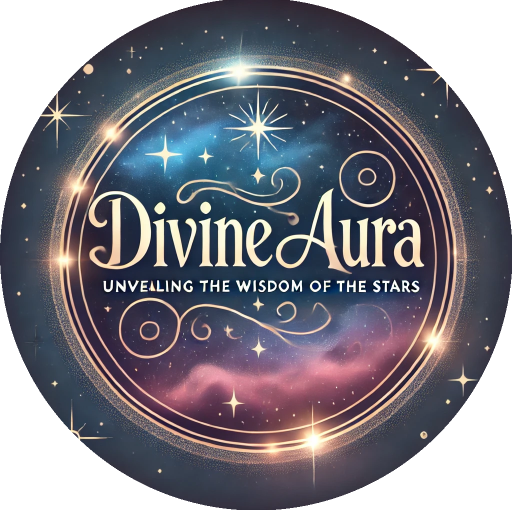INTRODUCTION:
Astrology has been a guiding force for centuries, providing insights into personality, emotions, and general well-being.Many people believe that the movements of the stars and planets—like planetary positions, moon phases, and zodiac signs—directly influence our emotional well-being.
People believe that the position of the stars and planets at birth impacts a person’s temperament, stress levels, and coping skills. For instance, certain astrological signs might be more vulnerable to anxiety while others are resilient in the face of adversity. Moreover, transits like Mercury retrograde are usually associated with increased confusion and emotional upheaval.
Whether considered a spiritual vehicle or a psychological model, astrology allows people to introspect about their emotions, become aware of patterns in their activities, and take solace in cosmic rhythms.Although astrology does not replace professional mental health services, people can use it as an adjunct practice for self-reflection and emotional stability.
Astrology & Mental Well-Being: How the Stars Influence Your Emotions
People have employed astrology for many centuries to interpret human behavior, emotions, and life cycles. Forsome, it is a spiritual or mystical creed, whereas others see practical benefit in its capacity to offer guidance on their emotional states. Astrological lore says that the planets and stars deeply impact moods, relationships, and mental strength.. While Astrology is not a replacement for professional mental health treatment, it may provide an adjunctive method of self-awareness and emotional equilibrium. Following, we discuss several methods by which the celestial bodies impact mental health.
The Moon and Emotional Cycle
The Moon, which controls tides on our planet, is also thought to control the emotions of human beings. In astrology, the Moon symbolizes our inner life, subconscious, and emotional reactions. The different Moon phases—New Moon, Waxing Moon, Full Moon, and Waning Moon—affect mood changes and energy levels.
New Moon:
This is associated with introspection and new beginnings. It’s a period where individuals tend to feel more contemplative and might withdraw to a quiet place in order to lay out intentions for the future.
Full Moon:
People say the Full Moon enhances emotions, causing heightened sensitivity, restlessness, or mood swings. Studies show sleep disturbances occur more often during this phase, affecting mental well-being.
Waning Moon:
People associate this time with release, making it a suitable period for letting go of emotions and stress. For extremely sensitive individuals, it is advisable to keep up with the cycles of the Moon in order to understand mood swings and regulate mental health accordingly.
Planetary Transits and Their Effect on Mood
Astrology posits that the motion of planets—termed transits—can have a considerable impact on feelings and mental states. Astrologers have noted that certain planetary transits bring challenges, while others introduce phases of stability and emotional growth.
Mercury Retrograde
Widely blamed for communications breakdowns, miscommunications, and mental fogginess, Mercury retrograde is a time when people might feel more apprehensive, indecisive, or emotionally depleted.
Saturn Return
This occurs roughly every 29.5 years, and Saturn’s return is one with significant life change and personal introspection. People feel a sense of crisis and will often wonder about their purpose and future.
Jupiter Transits
Jupiter, the expansive and optimistic planet, brings times of emotional comfort, motivation, and personal development when well placed in an individual’s chart.
Zodiac Signs and Emotional Tendencies
Every zodiac sign as specific personality traits and emotional tendencies. Knowledge of these traits can guve insights into how people deal with emotions and stress.
Fire Signs (Aries, Leo, Sagittarius)
Fire signs are generally passionate and energetic, with such persons usually going through a whirlwind of emotions. They tend to act on impulse but bounce back from failures in no such time.
Earth Sign (Taurus, Virgo, Capricorn)
Down-to-Earth and pragmatic, earth signs tend to repress their emotions and if not checked, such repression can result in stress accumulation.
Air Signs (Gemini, Libra, Aquarius)
These people use logic and communication to process feelings but can overthink and become detached emotionally.
Water Signs (Cancer, Scorpio, Pisces)
Extremely intuitive and sensitive, water signs have intense feelings and can be susceptible to mood swings and emotional overload. By understanding emotional patterns related to their zodiac signs, people can improve coping skills and emotional resilience.
Astrology for Self-Awareness
Although not supported by science, for many individuals, there is comfort in the fact that astrology can offer self-awareness and insight into emotional struggles. Through an examination of their birth chart, one can learn more about their emotional needs, triggers and strengths. This can be especially helpful for:
Determining Emotional Strengths and Weakness
Knowing one’s astrological composition can be used to identify areas for growth and emotional equilibrium.
Navigating Relationships
Astrology may provide insights into communication style and compatibility, allowing individuals to better navigate interpersonal relationships.
Finding Emotional Stability
By following the guidance of astrology, individuals may schedule self-care activities in harmony with astrological influences, for example, relaxation exercises during tense planetary transits.
Limitations of Astrology in Mental health
While it has its advantages, astrology is not a substitute for professional mental health treatment. Anxiety, depression, and trauma need medical and psychological attention. Astrology may provide a framework for introspection, but it is to be utilized in conjunction with evidence-based treatments like therapy, mindfulness, and healthy lifestyles.
CONCLUSION:
Astrology provides a special insight into emotional health, enabling individuals tograsp their moods, responses, and behavioural tendencies. Through the observation of Moon influences, planetary transits, and zodiac signs, individuals can develop greater self-knowledge and better control over their emotions. Astrology must, however, be viewed as an adjunct, not a solution, to mental health issues. Used in conjunction with professional advice, it can offer a useful framework for emotional development and equilibrium.

